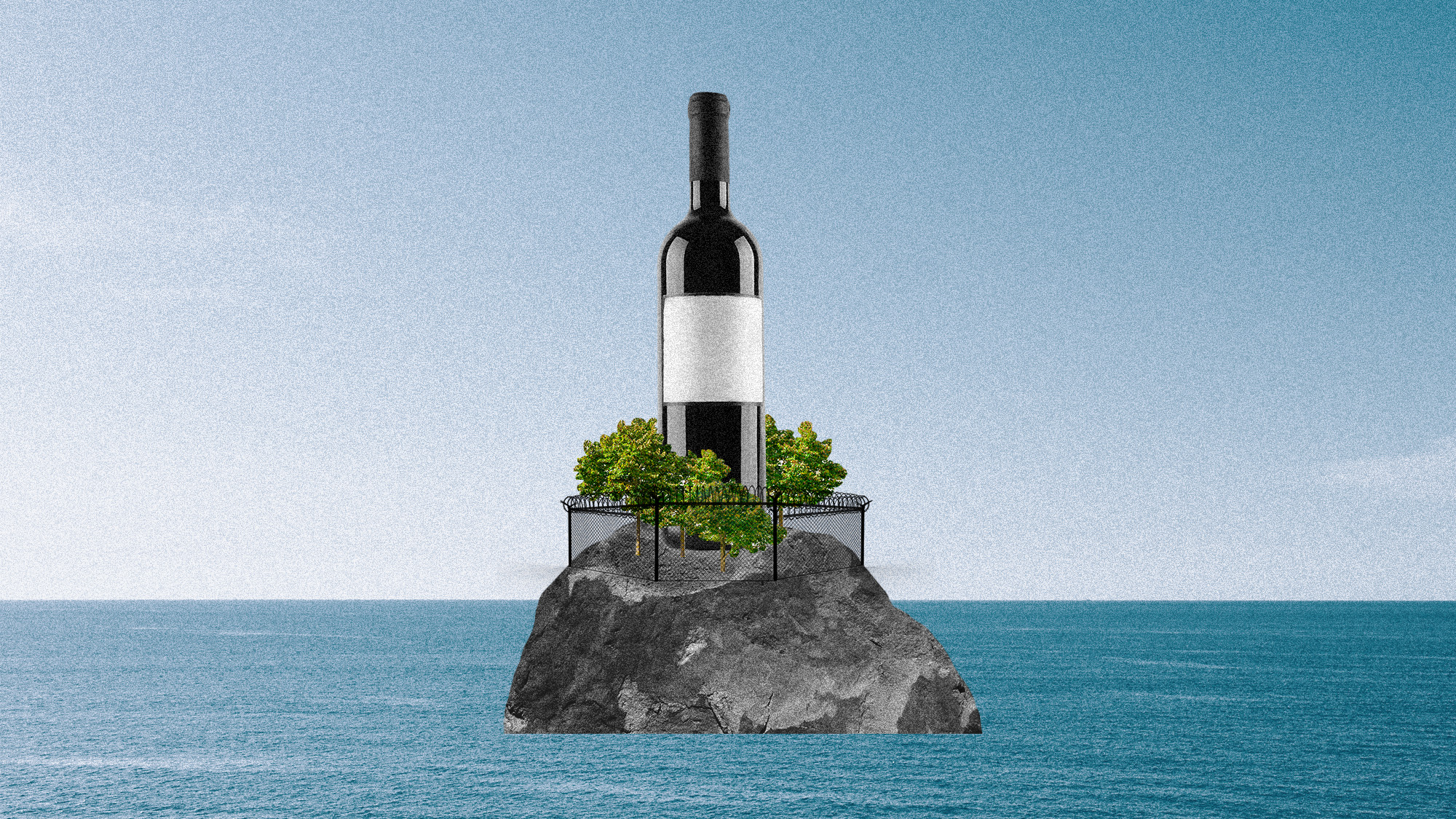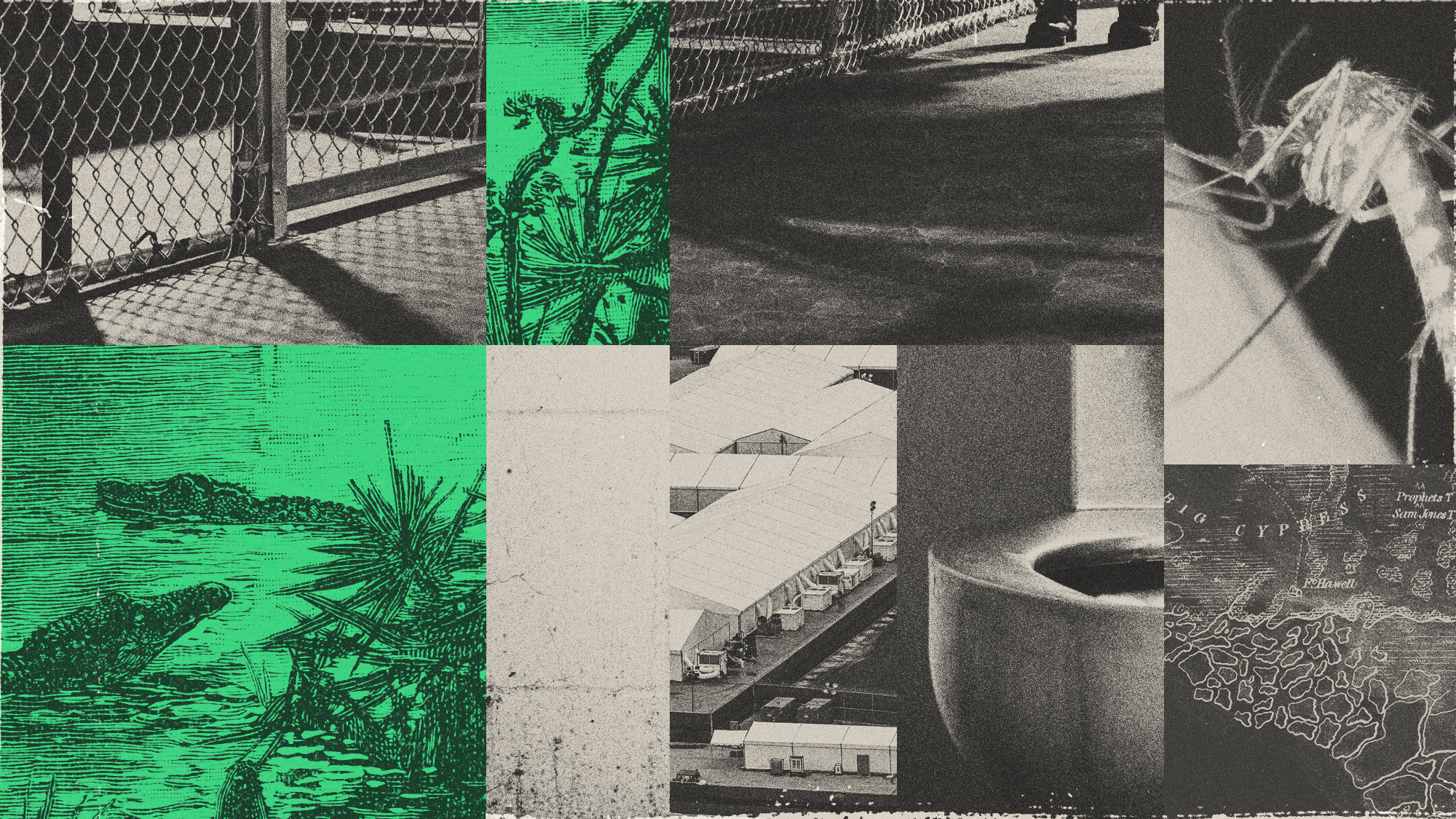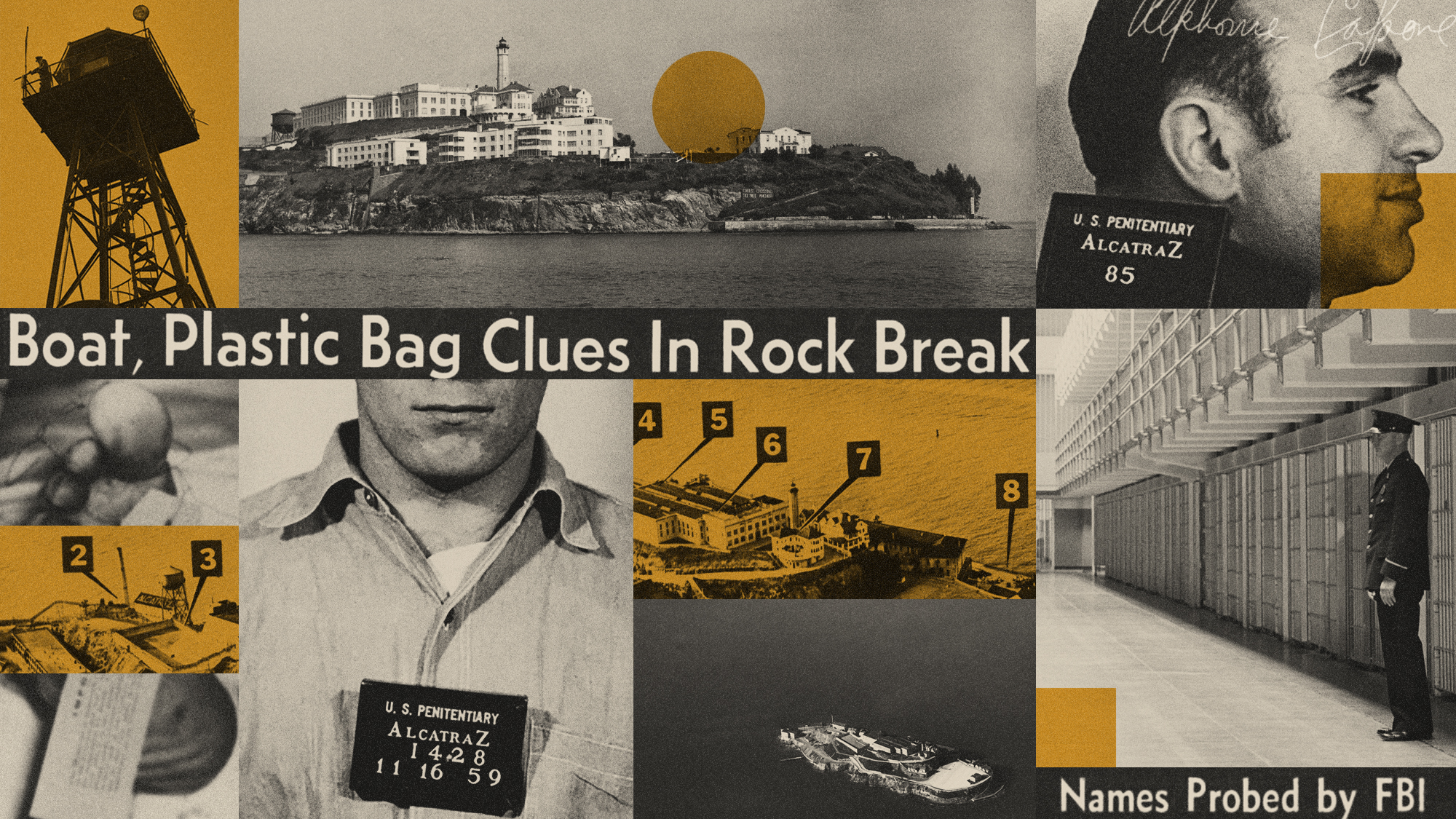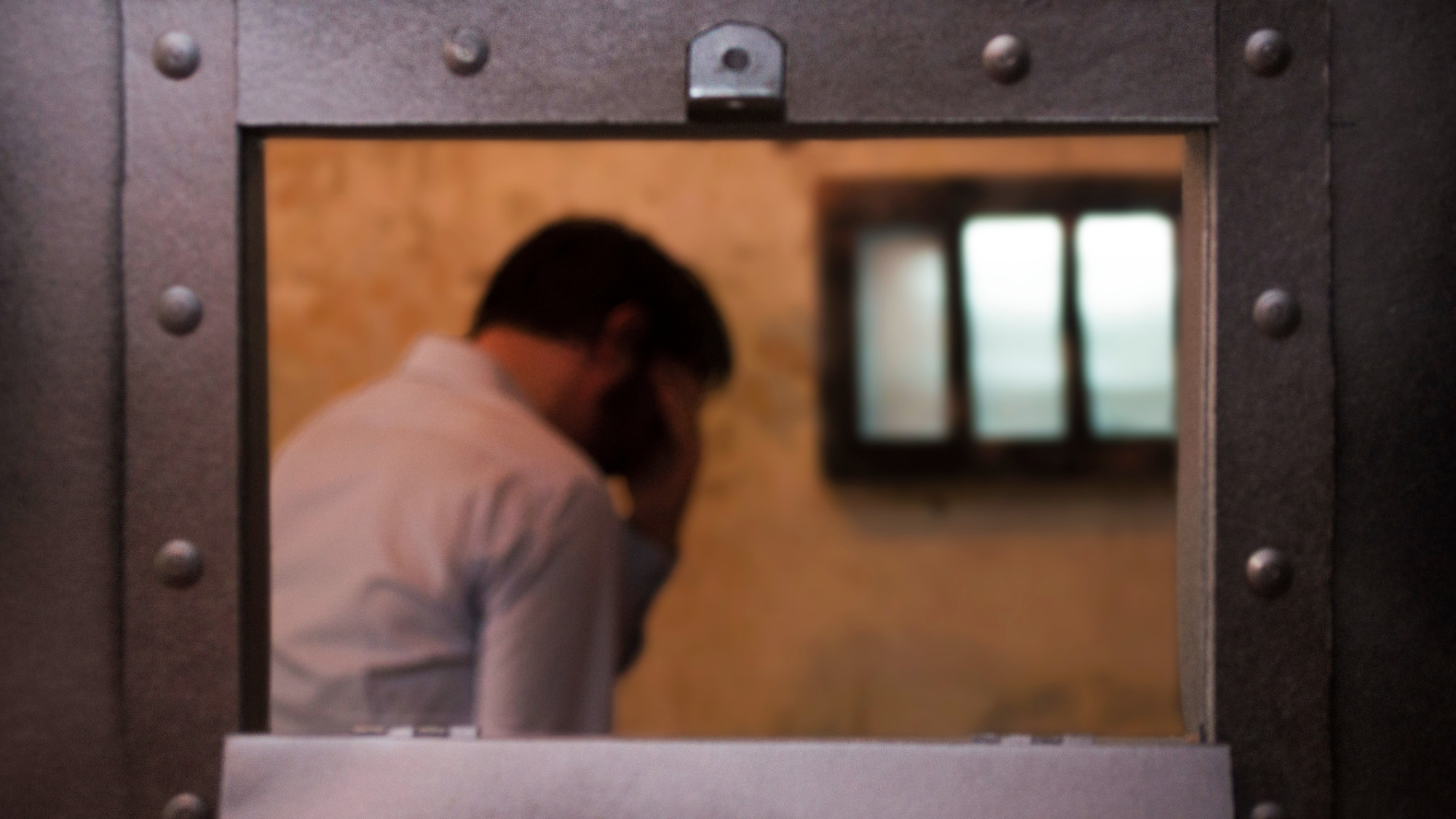Tuscany's idyllic island prison with a waiting list
Europe's last island prison houses 90 inmates and makes wine that sells for $100 a bottle

A free daily email with the biggest news stories of the day – and the best features from TheWeek.com
You are now subscribed
Your newsletter sign-up was successful
Europe's last remaining prison island, off the coast of Tuscany, marked a major milestone in June with the launch of its 12th vintage of Gorgona bianco, a yield of 9,000 bottles.
Gorgona, a "small, serene island, with pastel-coloured houses", can easily be mistaken for a "tropical oasis", were it not for the many Jeeps labelled Polizia Penitenziaria, said Harpers.
But prisoners who serve long sentences for serious crimes "find a new purpose" at the Gorgona Agricultural Penal Colony by partaking in several rehabilitation programmes, including vine husbandry and wine-making. While the reoffending rate for Italy's prison population is around 85%, it's 0% for those who participate in the wine-making programme.
The Week
Escape your echo chamber. Get the facts behind the news, plus analysis from multiple perspectives.

Sign up for The Week's Free Newsletters
From our morning news briefing to a weekly Good News Newsletter, get the best of The Week delivered directly to your inbox.
From our morning news briefing to a weekly Good News Newsletter, get the best of The Week delivered directly to your inbox.
An island paradise
Although it was once a monastic site, Gorgona island – with its "intricate mountain topography" not unlike the fictional Isla Nublar from "Jurassic Park" – became an agricultural penal colony in 1869, said Tom Mullen in Forbes. "Circled by rocky coastal cliffs" and "coated by extensive pine forests", it boasts "natural beauty and ample greenery" and is home to wild rabbits and peregrine falcons.
The 90 or so inmates who successfully apply to serve their sentences on Gorgona live in concrete buildings where they "cook their own food" and "tend their own garden for fresh vegetables". Many also roam the island to carry out specific tasks, Mullen added.
They mostly work outdoors, "ranching and farming and learning a trade that will help them reintegrate", said Francesco Bertolucci in The Boston Globe. Nearly all labour on the island is done by the inmates, including "sorting trash and recycling".
Although Gorgona is relaxed, it has a "zero-tolerance policy about what is and is not acceptable behaviour". Inmates follow a "no-nonsense Ten Commandments", including a ban on drug possession or testing positive for drugs. Any inmate violating the rules "ends his stay here and is sent to another prison".
A free daily email with the biggest news stories of the day – and the best features from TheWeek.com
Reducing reoffending
Gorgona has had a winery for centuries, "but the wines were terrible and the vineyards were in bad shape", said Society of Wine Educators board member Wanda Mann in Food & Wine. So, in 2012, the warden contacted more than 200 Italian wineries to develop a wine-making programme on the island. And only one – Frescobaldi – replied.
Approximately 15 inmates work "tending vines and producing wine" at any time, with these individuals rotated based on prison officials' decisions "to reduce envy", said Mullen. The two wines they produce are Gorgona bianco and Gorgona rosso, with the former retailing for approximately £77 ($100) a bottle.
"They gain a work portfolio – so it's a project that gives a second opportunity," said Lamberto Frescobaldi, president of the company. Crucially, they are also paid at the same rate as professionals performing the same tasks on the mainland. "When they leave the island, they have a good amount of money to buy a car, pay rent. So, the recidivism rate is low," said Frescobaldi. "If you leave prison with cash in your pocket you will be less inclined to commit crime."
Keumars Afifi-Sabet is a freelance writer at The Week Digital, and is the technology editor on Live Science, another Future Publishing brand. He was previously features editor with ITPro, where he commissioned and published in-depth articles around a variety of areas including AI, cloud computing and cybersecurity. As a writer, he specialises in technology and current affairs. In addition to The Week Digital, he contributes to Computeractive and TechRadar, among other publications.
-
 Democrats push for ICE accountability
Democrats push for ICE accountabilityFeature U.S. citizens shot and violently detained by immigration agents testify at Capitol Hill hearing
-
 The price of sporting glory
The price of sporting gloryFeature The Milan-Cortina Winter Olympics kicked off this week. Will Italy regret playing host?
-
 Fulton County: A dress rehearsal for election theft?
Fulton County: A dress rehearsal for election theft?Feature Director of National Intelligence Tulsi Gabbard is Trump's de facto ‘voter fraud’ czar
-
 Insects and sewer water: the alleged conditions at 'Alligator Alcatraz'
Insects and sewer water: the alleged conditions at 'Alligator Alcatraz'The Explainer Hundreds of immigrants with no criminal charges in the United States are being held at the Florida facility
-
 Alcatraz: America's most infamous prison
Alcatraz: America's most infamous prisonThe Explainer Donald Trump wants to re-open notorious 'escape-proof' jail for 'most ruthless and violent prisoners' in the US
-
 Italy's prisons crisis
Italy's prisons crisisUnder the Radar Severe overcrowding, dire conditions and appalling violence have brought the Italian carceral system to boiling point
-
 DOJ demands changes at 'abhorrent' Atlanta jail
DOJ demands changes at 'abhorrent' Atlanta jailSpeed Read Georgia's Fulton County Jail subjects inmates to 'unconstitutional' conditions, the 16-month investigation found
-
 'Virtual prisons': how tech could let offenders serve time at home
'Virtual prisons': how tech could let offenders serve time at homeUnder The Radar New technology offers opportunities to address the jails crisis but does it 'miss the point'?
-
 The countries that could solve the UK prisons crisis
The countries that could solve the UK prisons crisisThe Explainer Britain's jails are at breaking point, and ministers are looking overseas for solutions
-
 Kenya's 'epidemic of violence' against female athletes
Kenya's 'epidemic of violence' against female athletesUnder the Radar Murder of Olympic marathon runner Rebecca Cheptegei spotlights 'trend' of killings and wider culture of domestic abuse
-
 DOJ investigates Tennessee's largest prison
DOJ investigates Tennessee's largest prisonSpeed Read Federal authorities are looking into reports of substantial violence and sexual abuse at Trousdale Turner Correctional Center